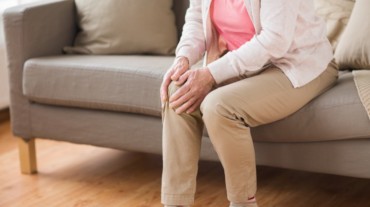
Have you been ignoring that nagging knee pain? Or are you noticing your parent going through debilitating aches? A slight ache may not seem alarming at first, but if it is neglected for an extended length of time, it can quickly escalate into something more serious.
Pain is an actual or potential damage of the tissues that causes an unpleasant sensory and emotional experience. It’s one of the common reasons why people visit a doctor or consult a physiotherapist. You might be surprised to learn that Chronic pain affects more people than conditions such as heart disease, diabetes and cancer.

As you grow older, a number of minor issues start cropping up. From joint aches to hip pain, any form of pain acute or chronic must be treated on time to ensure that it does not aggravate.
There are a few common age-related pains that you should not ignore, whether you may be suffering or an elder at home.
As one grows older, stiffness and pain in the lower back is a common issue that most people complain about. Age-related lower back pain is mainly caused by wear and tear, degenerative changes in the discs, joint degeneration and other causes such as decreased bone density, lower elasticity of the muscles and ligaments.
If you experience lower back pain, it’s important to seek help on time and consult a doctor as well as a physiotherapist who can assess your condition and give you the right guidance. While it’s not possible to entirely avoid age-related pains, here are a few preventive measures you can take
* Exercise regularly: Starting regular exercises early on can help you prevent age-related pains. When you are in your 40s, make sure you set aside a few hours everyday for a walk or a session of yoga. These smaller actions can make a huge difference to your quality of life as you grow older.
* Consult a physiotherapist regularly: As you age, your muscles and joints become weak. Before any of your minor issues become worse, seek a consultation and work towards building your strength with the help of a physiotherapist. We have worked with a number of patients above 60 years of age who have been able to minimize age related falls and other muscle pains due to regular consultation with a physical therapist.

Knee pain can be severely painful and it can also limit natural movements. Obesity, muscle fatigue due to wear and tear, arthritis, and less joint support due to weak muscles are some of the common causes for knee pain. Early intervention is the key to managing knee pain better. Here are some of the symptoms to watch out for
* Persistent pain in the knee
* Unable to bend or straighten knee joint
* Difficulty in putting weight on the knee while standing up
Select Topics of your interest and let us customize your feed.
PERSONALISE NOWThe hip is connected to the lower back and leg bones, and any pain in these areas can cause pain in the hip joint. In older adults, osteoarthritis and rheumatoid arthritis are the main causes for hip pain. It causes inflammation and destroys the cartilage that acts as a protection to the hip bones.
The pain slowly increases leading to stiffness in the hip and inability to move easily. If you are suffering from hip pain, do not try any exercises or medications at home. Consult a doctor and a physiotherapy specialist immediately who can recommend the correct course of action.

Shoulder pain may occur due to sudden trauma or it may appear gradually over a period of months and sometimes years. Poor posture for extended periods or repeated overhead movements such as lifting heavy objects over the head are some of the common reasons behind shoulder injury. A dull soreness in the shoulder, arm weakness, difficulty reaching back or lifting your arm up, and disrupted sleep are some of the usual symptoms.
The frequency of a muscle spasm or a cramp increases as you grow older. Physical exertion can cause sudden muscle spasm and intense pain. This can lead to inability to function normally for a few days. Muscle spasms are preventable if you are careful. Most muscle spasms go away in 2-3 days. However, if your pain lasts for more than a few days, consult your doctor.